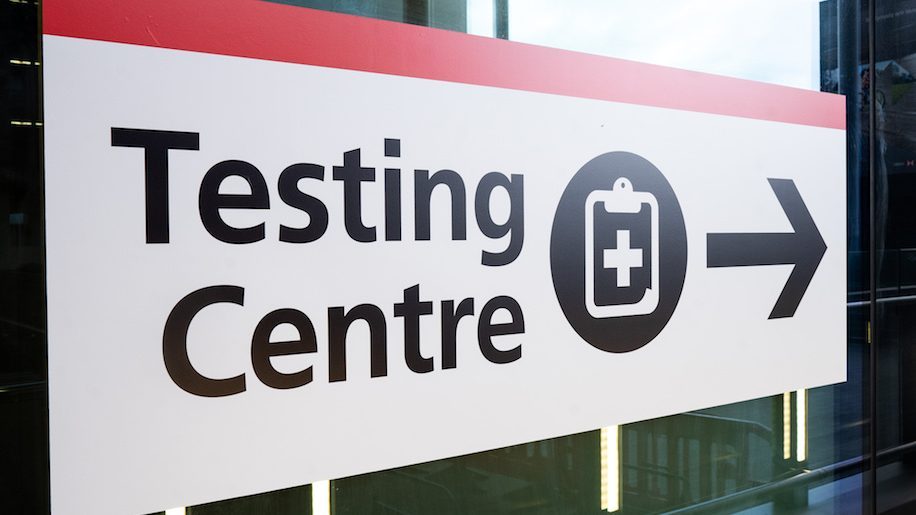
A study commissioned by the International Air Transport Association (IATA) has revealed that rapid antigen tests can “safely reopen” international travel.
The Oxera-Edge Health report found that high performing rapid antigen tests are as effective as PCR tests in identifying Covid-19. New modelling shows that in a sample of 1,000 air passengers with an infection prevalence rate of 1 per cent, the best-performing antigen test would detect all but one positive case of infection.
The importance of the study is that it supports the use of antigen tests as an alternative to PCR tests for travel. Antigen tests have the advantage of being on average 60 per cent less expensive than PCR tests and can deliver results quickly (many within 20 minutes). They are also easy to administer as they do not require specialist equipment or a laboratory to process results. By comparison, PCR testing requires a median time of 28 hours to receive results according to the study.
Additionally, the report highlights the issue of scarcity of PCR tests, with current spare PCR testing capacity in the UK only able to cover 25 per cent of 2019 passenger levels.
The study analysed five routes (London-New York, London-Frankfurt, UK-Singapore, UK-Pakistan and Manchester-Canary Islands) and found that the cost of PCR testing would reduce demand by an average of 65 per cent. While an antigen testing requirement would still reduce demand, this would be far lower at 30 per cent.
IATA is urging governments to allow rapid testing within their requirements for international travel, the majority of which currently demand PCR testing. Alexandre de Juniac, IATA’s Director General and CEO, commented on the findings:
“Travellers need options. Including antigen testing among acceptable tests will certainly give strength to the recovery. And the EU’s specification of acceptable antigen tests offers a good baseline for wider international harmonization of acceptable standards. We now need to see governments implement these recommendations. The goal is to have a clear set of testing options that are medically effective, financially accessible, and practically available to all prospective travelers.”
“We are already seeing rapid testing becoming commonplace in non-travel settings such as schools and workplaces. Extending its use to travel is a logical step. Science backs this up. In real world conditions, antigen testing is as effective as PCR testing in reducing the risk of cross-border transmission. Meanwhile the cost and bureaucracy of PCR tests adds huge burdens to families and businesses looking to travel. These are important considerations in preparing for a successful re-start.”
“Restarting international aviation will energize the economic recovery from Covid-19. Along with vaccines, testing will play a critical role in giving governments the confidence to re-open their borders to travelers. For governments, the top priority is accuracy. But travelers will also need tests to be convenient and affordable. The Oxera-Edge Health report tells us that the best-in-class antigen tests can tick all these boxes. It’s important for governments to consider these findings as they make plans for a re-start.”
Michele Granatstein, Partner at Oxera and Head of its Aviation practice, added:
‘When international travel reopens testing is likely to remain part of the strategy for controlling COVID. The type of testing regime chosen will make the difference in how quickly the travel industry recovers.
“The choice of a rapid test would be a real boost to the global travel and international business community, and our research shows it can be as effective as other testing regimes and as effective as a ten-day quarantine.’
George Batchelor, Co-founder and Director of Edge Health, also commented on the study:
‘Our studies show that antigen testing can be comparable to PCR in overall effectiveness, with any disparity in sensitivity largely ironed out three days after arrival. When taking into consideration compliance with quarantine, antigen tests administered on departure can be effective at screening for Covid-19 infections.’
‘Tests will reduce the risk of air passengers spreading Covid-19, particularly those from countries where prevalence rates are low. If governments accept antigen testing in the coming months, combined with the rollout of vaccination programmes, it will enable the airline industry to get back on its feet safely.’
This news follows Oxera and Edge Health’s recent findings which revealed that antigen testing on departure is as effective as a ten-day quarantine if there is compliance to the rules. New data has also suggested that compliance is higher than before, with 71 per cent following quarantine guidelines until day eight.












